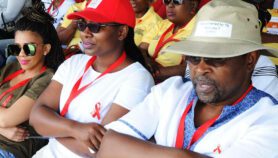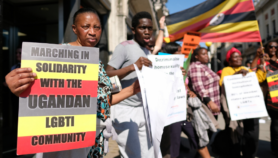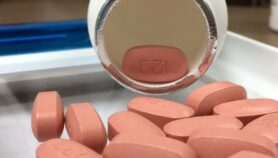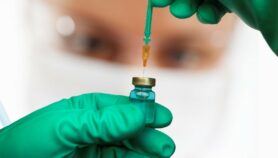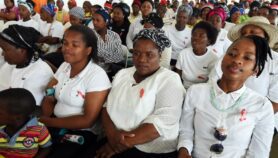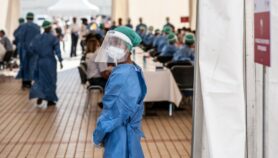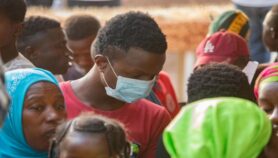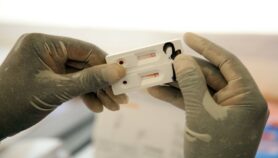06/10/21
Use COVID-19 lessons to boost HIV vaccine push
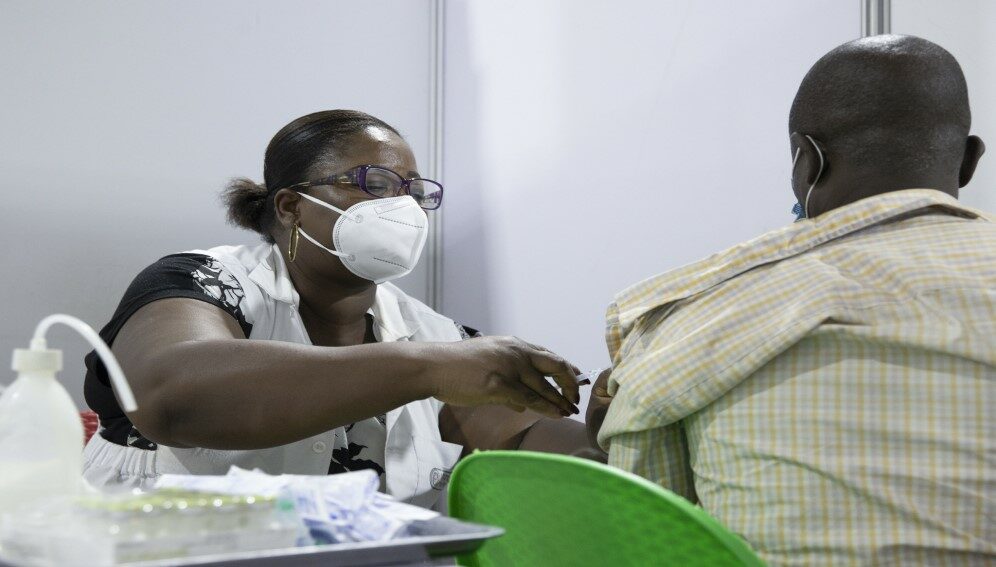
Send to a friend
The details you provide on this page will not be used to send unsolicited email, and will not be sold to a 3rd party. See privacy policy.
Lessons must be learned from COVID-19 as a new HIV vaccine trial starts this month, writes Ifeanyi M. Nsofor.
More than 60 years after HIV was first identified in what is now Kinshasa in the Democratic Republic of Congo, the first clinical trial of an mRNA HIV vaccine will begin in the United States this month.
Moderna, the manufacturer of Moderna COVID-19 vaccine, is part of the team conducting the trial by deploying the same messenger RNA (mRN) technology used in the Moderna vaccine. This is an important trial because it could save millions of lives.
The trial is expected to start this month (15 October) and end in April 2023. It involves 56 HIV-negative participants aged 18 to 56.
How mRNA vaccine works
The mRNA vaccine teaches human cells to fight infections. The mRNA arms our immune system to make specific proteins. In the case of COVID-19, the mRNA teaches the immune system to produce spikes, similar to those on the COVID virus. These harmless spikes give our immune system the information needed to quickly detect a coronavirus infection and produce the appropriate antibodies.
The new antibodies respond once the COVID virus enters the body. They attach themselves to the virus, protecting our cells and rendering the spikes on the virus useless.
“Deploying mRNA technology to fight HIV is imperative to prevent deaths and sufferings. A new vaccine would be a game-changer.”
Ifeanyi M. Nsofor
MRNA vaccines are not harmful to the body. They don’t change your DNA or stay in your body. They give your immune system instructions on how to fend off COVID-19, then disappear like a Snapchat message, according to Tom Frieden, president of the global health initiative Resolve to Save Lives and former director of the US Centers for Disease Control and Prevention.
Why HIV vaccine needed
Although HIV is not a pandemic, it is an epidemic in several countries. According to UNAIDS, there were 38 million people living with HIV in 2020 This is more than the population of Canada. Eastern and Southern Africa have the highest HIV rate at 6.7 per cent, followed by Central and Western Africa with a prevalence of 1.4 per cent. Central Europe and North America have the lowest rate, at 0.2 per cent. Globally, there were around 1.5 million new HIV infections in 2020, with around 680 000 deaths. It is clear that HIV is a major global health issue.
Deploying mRNA technology to fight HIV is imperative to prevent deaths and suffering. A new vaccine would be a game-changer. However, international cooperation and solidarity are necessary. More so, COVID-19 has shown that a global problem requires a global solution. The world is interconnected, and infectious diseases do not respect borders.
However, the selfishness of richer Western nations in hoarding COVID-19 vaccines should not be repeated in managing the eventual rollout of an HIV vaccine. We should not have a repeat of wealthy countries caring for just their citizens to the detriment of other countries.
Equity in HIV vaccine research
There must be equity in enrollment into HIV vaccine trials, procurement and distribution of a safe and efficacious vaccine. A 2020 scoping review on engagement of racial and ethnic minorities in HIV treatment and vaccine clinical trials showed that despite the knowledge of how to better recruit racial and ethnic minorities, few interventions have been documented using these strategies.
It is important to decentralise the clinical trial to take place in different regions simultaneously. Doing so would ensure that the findings of the trial are generalisable.
“To achieve success, multi-sectoral teams, including traditional institutions, governments, religious leaders, communities and private sector actors must be assembled.”
Ifeanyi M. Nsofor
Specifically, I would like to see HIV vaccine clinical trials in Sub-Saharan Africa. Moderna should work with the Africa Centres for Disease Control and Prevention through the African Union because Africa bears the brunt of the HIV epidemic. If the HIV vaccine turns out to be safe and efficacious, the African continent would require a significant proportion of the vaccine. Therefore, Africans must be enrolled in the clinical trial.
Production of a safe and effective HIV vaccine must also be decentralised. By the time an HIV vaccine is ready for production, there would be opportunities for local manufacture in Africa.
For instance, on 23 April 2021, Felix Tshisekedi, chair of the African Union and president of the Democratic Republic of Congo, launched the Partnerships for African Vaccine Manufacturing. Afterwards, several memoranda of understanding were signed for vaccine manufacturing in Egypt, Morocco, Senegal and South Africa. Other African Union platforms to leverage include the Africa Vaccine Acquisition Task Team and Africa Medical Supplies Platform. Both platforms would help with pre-ordering, supply and logistics of an HIV vaccine.
Lessons from COVID-19 vaccines
Early on in the COVID-19 pandemic, the World Health Organization reported an infodemic. This is an excessive amount of misinformation and disinformation which makes response to the pandemic very difficult. To avoid this problem with the HIV vaccination, it is important for national health authorities to start early and be proactive about developing the right messaging. Such messaging must counter misinformation, disinformation and fake news. It must forecast the kinds of questions people may have or opposition to the vaccine.
To achieve success, multi-sectoral teams, including traditional institutions, governments, religious leaders, communities and private sector actors must be assembled. They must go beyond just involving epidemiologists and scientists.
The messaging should be deployed via multiple platforms: social media, radio, TV, village town criers, religious institutions, schools and contextually relevant platforms. No sector should be left behind. They are all important.The private sector especially has played key roles in the COVID-19 response and should be involved in HIV programming and, in particular, efforts to scale up HIV vaccine production and administration.
For example, Nigeria’s private sector coalition against COVID-19 and South Africa’s Solidarity Fund have raised more than US$72 million and US$220 million respectively. These funds have supported COVID-19 prevention, testing, treatment, vaccination and social support in both countries. Beyond fundraising, the private sector has capacities in vaccine production, storage, distribution and logistics.
We have an opportunity to develop a vaccine to prevent an infectious disease, which disproportionately affects poor people across Africa. Applying the lessons from the COVID-19 response is imperative. It is a matter of life and death.
Ifeanyi M. Nsofor, is a public health physician, a graduate of the Liverpool School of Tropical Medicine and the CEO of EpiAFRIC. He is a Senior New Voices Fellow at the Aspen Institute, Senior Atlantic Fellow for Health Equity at the George Washington University and an Innovation Fellow at PandemicTech. You can follow Nsofor on Twitter @ekemma
This piece was produced by SciDev.Net’s Sub-Saharan Africa English desk.
References
- A phase 1 study to evaluate the safety and immunogenicity of eOD-GT8 60mer mRNA vaccine (mRNA-1644) and Core-g28v2 60mer mRNA vaccine (mRNA-1644v2-Core) (International AIDS Vaccine Initiative, 30 September 2021).
- How mRNA vaccines work. Harvard University (16 February 2021).
- The Global HIV/AIDS Epidemic. Kaiser Family Foundation ( 2 March, 2021)
- Sarah Bauerle Bass and others Exploring the engagement of racial and ethnic minorities in HIV treatment and vaccine clinical trials: A scoping review of literature and implications for future research. (AIDS Patient Care and STDs, , 3 September 2020).
- Statement on the remarkable progress made by several African countries as part of the Partnerships for African Vaccine Manufacturing (PAVM) (Africa CDC, 13 July 2021)
- Private Sector Coalition Against COVID-19 (2021).
- Solidarity Fund Integrated Annual Report (Solidarity Fund, February 2021).




